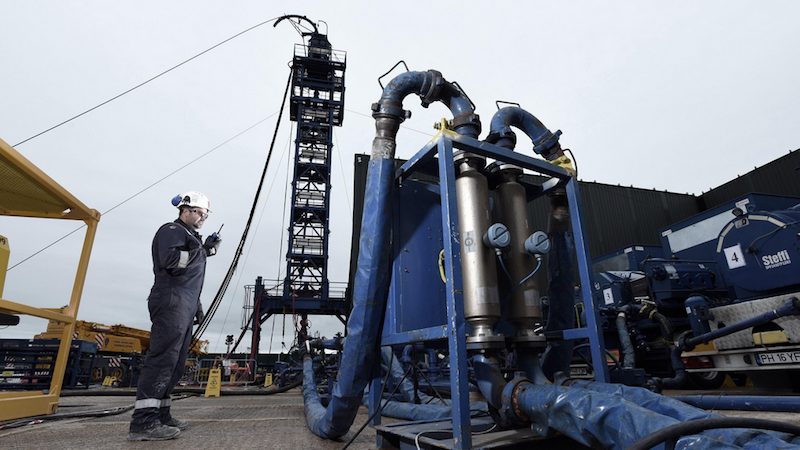The UK government has rejected calls from shale gas companies to loosen limits on earth tremors, in a potentially fatal blow to British fracking.
Ineos and Cuadrilla said the rules, which require drilling to be halted for 18 hours after any tremor exceeding 0.5 on the Richter scale, are “absurd” and “unworkable”. In the US, the limit is 4 magnitude.
In principle, the Conservative administration supports shale gas exploration. Climate minister Claire Perry said in October gas had a role in a low-carbon future and it was “pragmatic” to back fracking.
However in a statement on Thursday morning, the energy ministry said: “We set these regulations in consultation with the industry and we have no plans to review them.”
Campaigners celebrated the latest obstacle to building new fossil fuel infrastructure, which they have long argued is incompatible with a safe climate future. Greenpeace UK’s Hannah Martin tweeted: “This is essentially an end to the fracking industry.”
Ok I’m now calling it. This is essentially an end to the #fracking industry. It’s going to continue to fizzle out until a new Tory leader can officially announce its ‘banned’ in an attempt to be green. https://t.co/24Y3oRGdBY
— Hannah Martin (@Hannah_RM) February 7, 2019
In the US, hydraulic fracturing transformed the oil and gas industry, opening previously untapped resources. Injecting water, sand and chemicals underground at high pressure breaks up shale rock, allowing gas to flow out.
Advocates hoped to repeat the trick in Britain, to replace dwindling North Sea reserves and reduce reliance on imports. But the country’s denser population, tricky geology and tighter regulatory environment made conditions less favourable.
A government survey in December 2018 found 35% of people opposed fracking, against 13% who supported it. The remainder did not know. Of those against fracking, 40% cited the risk of earthquakes, up from 26% just three months earlier.
Cuadrilla, the only company actively fracking in the UK, restarted operations in the northwest of England last October after a 7-year hiatus. But it admitted they had struggled to produce gas as they repeatedly recorded tremors over the allowed limit.
